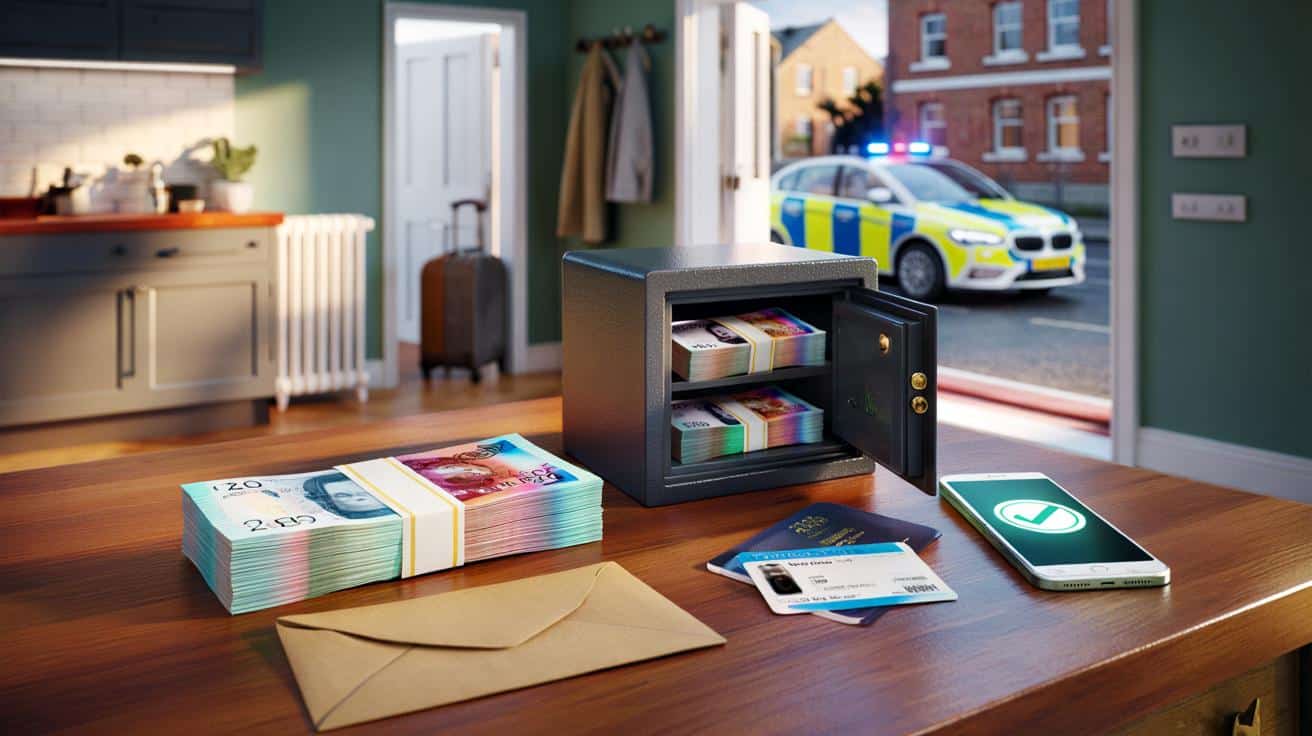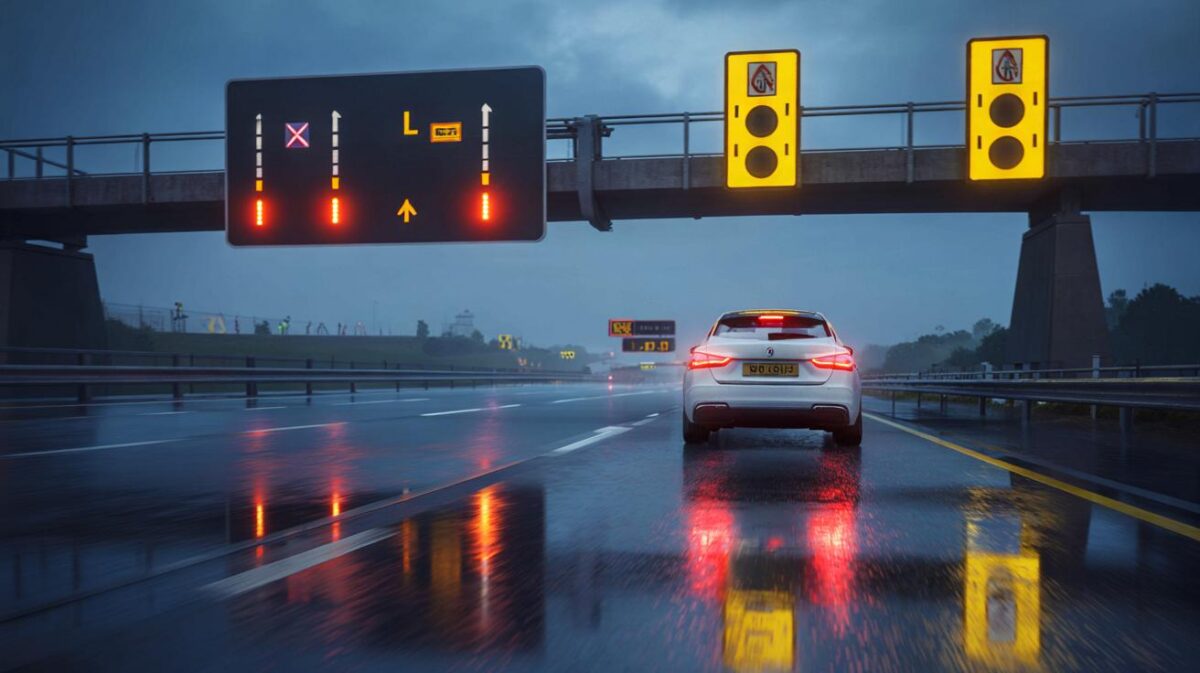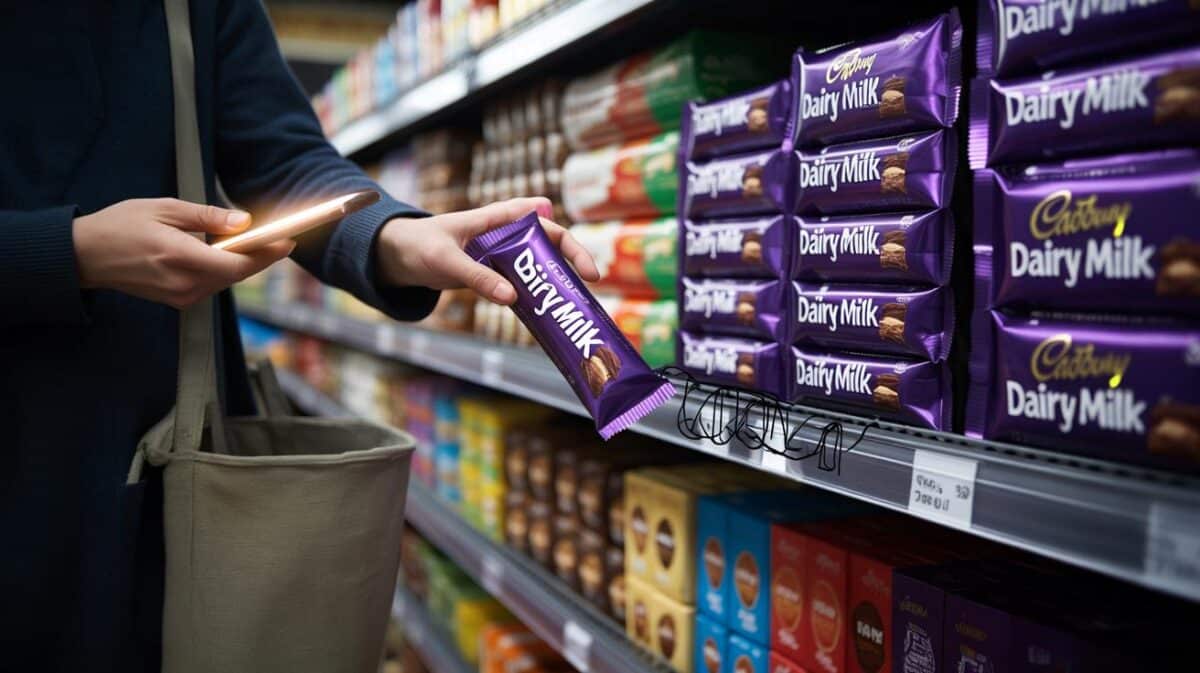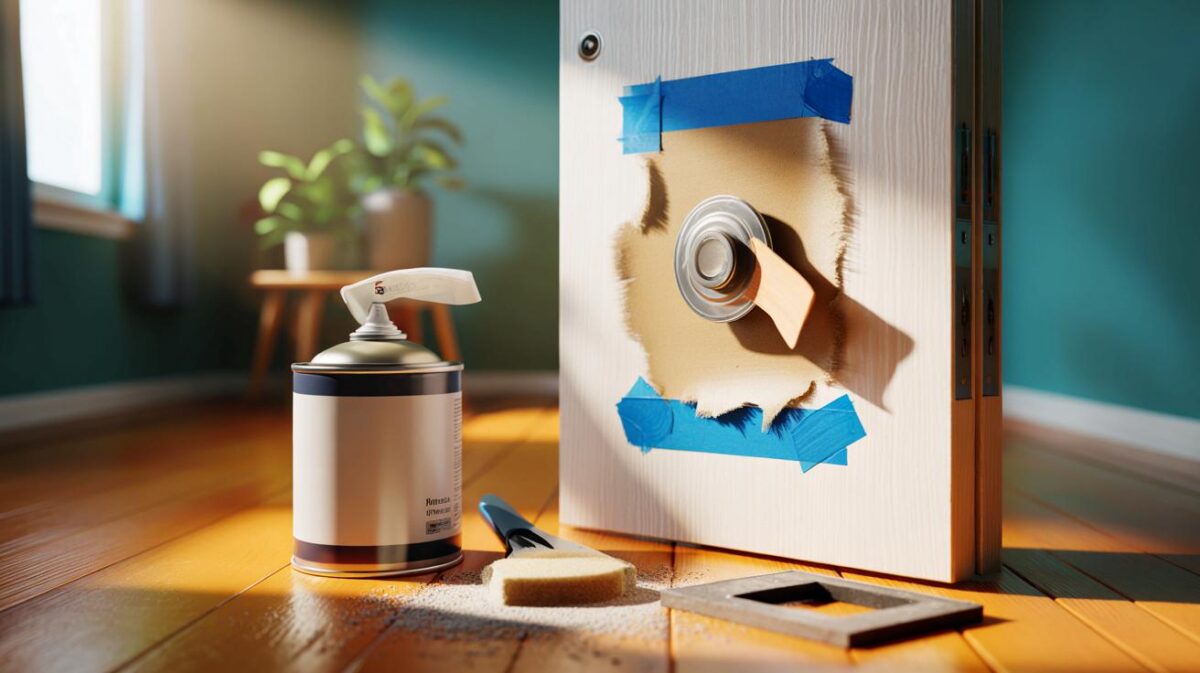Across Britain, more people are keeping notes close — in wallets, glove boxes and biscuit tins — and asking a simple question with a knot in it: how much cash can I legally keep on me or at home?
A grandad pulls out a fold of twenties, a builder behind him pats a jacket heavy with notes, and two teens argue quietly about whether carrying “that much” is even allowed. Outside, a police car idles by, a reminder that money in your pocket can become someone else’s business quicker than you think.
Cash is back in the conversation. Not just because of bank glitches or bills gone feral, but because people want options that feel solid, close, under their own roof. Cash feels real in a way numbers on a screen never do.
So, how much is “too much”?
What the law actually says about cash on you — and at home
Here’s the straight answer first: **there’s no legal limit** to how much cash you can carry in the UK, nor to how much you can keep at home. That’s the headline. The small print matters, though. Police have powers under the Proceeds of Crime Act to seize cash of £1,000 or more if they reasonably suspect it’s linked to crime or intended for crime. It doesn’t mean you’ve done anything wrong; it means they can ask questions and hold the money while they check.
There’s a second rule that bites at the border. If you bring in or take out £10,000 or more in cash (or the equivalent in other currencies), you must declare it to UK customs. No drama if it’s legitimate — you can do the declaration online — but skip the form and you risk a fine and losing the cash while HMRC investigates. Plenty of honest people get caught by that one on family trips or business runs.
This is where confusion begins. People hear about seizures and assume there’s a cap. There isn’t. What exists are trigger points that invite scrutiny: large amounts in public, big bundles without a clear story, repeated deposits at the bank. Businesses in certain sectors must also run checks on cash payments of around €10,000 or more. Add all that together and carrying a lot can feel risky, even if it’s 100% legal. The difference between “allowed” and “easy” is doing your homework.
Keeping cash without headaches: simple steps that work
Start with a paper trail. Every large withdrawal or cash sale should have a screenshot, receipt or note that makes sense to someone who doesn’t know you. Keep it simple: an envelope with “£2,800 — kitchen refit deposit — 14/03/2025” and the matching bank statement. Photograph valuables you’ve sold, jot down the buyer’s first name and postcode, keep a copy of any invoice. **If you ever need to explain a bundle, two or three clean documents beat a long story.**
Think like a grown-up about where it lives. A decent safe, bolted down, is miles better than a shoebox. Fire-rated pouches help, and splitting cash between two places cuts loss if something goes wrong. Tell your insurer if you regularly keep more than they cover — many home policies cap cash at a few hundred pounds unless you upgrade. Also, remember the alternative: bank deposits are protected by the FSCS up to **£85,000 per authorised bank**. Stashing is fine; mixing it with basic risk control is smarter.
“Keep records, stay calm, and don’t make a scene with your money. If you can show where it came from, you’ll usually get it back — or better yet, you’ll never lose it in the first place.”
- Border run? Declare £10,000+ in cash online before you travel.
- Carrying a lot? Keep ID and a simple note explaining the purpose.
- At home: use a bolted safe and a small fire pouch for overflow.
- Banking: bring proof for large deposits to avoid account freezes.
- Only tell people who need to know; don’t broadcast “cash at home”.
The grey zones people trip over — and how to sidestep them
There’s a myth about “legal tender” that refuses to die. Notes and coins are legal tender for settling certain types of debt, but shops can set their own payment rules. A car dealer can say “no cash” or cap it at £5,000. A local builder might prefer cash but still needs a clear invoice if the total pushes near high-value thresholds. We’ve all had that moment where a simple plan meets a rule we didn’t know existed.
Police stops come down to story and presentation. If you’re pulled with £4,500 in an envelope, a work invoice or bank printout moves you from suspicious to sensible in seconds. If it’s wrapped in tape, smelling of damp, with no explanation, expect a long afternoon. HMRC and Border Force seize millions every year, much of it returned once owners show the origin. The difference is speed and stress.
Banks live in their own world. Large cash credits can trigger internal checks, and staff may file a Suspicious Activity Report without telling you. That’s not personal; it’s compliance. Come in with clean notes and basic proof, and life gets easier. Let’s be honest: no one keeps flawless paperwork for every fiver. Aim for “credible and tidy” rather than perfect and you’ll glide through most of the system.
Practical money habits if you want cash on hand
Pick a number that fits your actual life. Enough for a week of food and travel? A month? Write it down and keep to it so the stash doesn’t creep into five figures by accident. Count and rotate the notes twice a year, swap torn ones at the bank, and use larger bills only if you’re comfortable carrying them. If you’re storing for a purchase, label the goal — “boiler fund” — so you don’t raid it when energy prices spike.
When you need to move a big amount, think like a courier. Travel in daylight, keep the cash close to your body, don’t wave envelopes about, and go straight from A to B. Take one friend if you can. If the trip involves an airport or ferry and you’ll cross that £10,000 threshold, do the declaration and carry a printout or screenshot. It’s boring admin, but it keeps a normal day from turning into an interview room.
On storage, be a bit paranoid and a bit practical. Avoid obvious hiding spots, don’t put cash where heat can warp polymer notes, and keep dehumidifiers in damp basements. Replace any stash that got wet. A safe should be fixed to something heavy, not just tucked in a wardrobe. If you’re going above a few grand at home, consider a small upgrade to your contents cover. You’ll sleep better, which is the whole point of having a stash.
What it all adds up to
Cash gives you agency. It buys groceries during a card outage, pays a tradesperson on a Sunday, or gets you home when the network falls over. For all the talk about a cashless future, the law remains clear: you can hold what you like, where you like, so long as you can tell a clean, simple story about it. That story is your receipts, your declaration at the border, your tidy envelope with a note on top.
Money habits are personal, not perfect. Some people keep £200 in a biscuit tin; some keep five figures locked and bolted. One choice isn’t more “modern” than the other. What matters is knowing the triggers, keeping the basics in order, and not letting fear — of banks, of police, of headlines — write your financial life for you. If anything here nudged a thought, share it with someone who still thinks there’s a secret cap.
| Key points | Detail | Reader benefit |
|---|---|---|
| No legal cap on cash | Unlimited cash allowed on you or at home, subject to seizure powers if suspected criminal and £10,000 border declarations | Confidence to hold cash without myths or panic |
| Paperwork beats panic | Keep simple proof for withdrawals, sales, and travel declarations | Faster conversations with police, banks, or HMRC |
| Store it like you mean it | Bolted safes, split locations, insurance checks, FSCS for banked funds | Lower risk of loss, fire, theft, or frozen accounts |
FAQ :
- Is there a limit on how much cash I can keep at home in the UK?No. You can keep any amount. Keep records of where it came from and think about security and insurance.
- How much cash can I carry on me without breaking the law?There’s no limit. Police can seize £1,000 or more if they reasonably suspect a crime link, so carry proof if you’re moving a large sum.
- Do I need to declare cash when travelling in or out of the UK?Yes if you carry £10,000 or more (or equivalent). Declare online before travel and keep a copy on your phone or printed.
- Will my bank question a large cash deposit?Possibly. Banks may ask for source-of-funds and can file a confidential report. Bring basic proof like invoices or sale receipts.
- Can a shop refuse cash in the UK?Yes. Businesses can set payment rules. “Legal tender” doesn’t force a shop to accept notes for new purchases.









